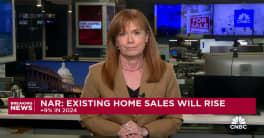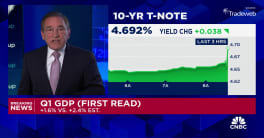Remember the old joke that says something like �no matter how many economists you lay end to end, they will never reach a conclusion�?
Don�t believe it. They will all reach a conclusion. Just take your pick.
Freddie Mac�s monthly report on the state of the economy was issued yesterday, and was only slightly altered from its predictions last month. The general trend, for the last few months, however, is to make 2005 look increasingly less promising for both home buyers and homeowners.
At the same time, UCLA�s Anderson Forecast Group issued a report stating that the U.S. was in a housing bubble that might slowly deflate � or abruptly burst with some unfortunates on the U.S. economy.
Freddie�s report raised the average expected interest rate on a 30 year fixed mortgages to 6.1%, 10 basis points higher than anticipated by the November report. Freddie�s economists also decreased projections for 2005 housing starts to 1.80 million dwellings for 2005 from 1.84 million last month.
Home sales, both new and existing, will easily set records this year, and with only one month left, the total projection of 7.8 million units (new and previously owned) will certainly hold up. Total home forecasts for 2005 were decreased to 7.05 million, a decline of 4% from this year. The report attributed this potential decline primarily to rising interest rates.
It appears as though the national appreciation rate for existing houses will finish the year at 10.1% (remember, this is based on different data than the OFHEO figure of 12.7 percent reported yesterday) but Freddie projects it will drop to 7% in 2005. This is a full point below the appreciation projected last month. Perhaps something to keep an eye on.
In the meantime, UCLA�s Anderson Forecast was much less positive. News reports stated that the highly respected group, which predicted the 2001 recession and the otherwise unexpected economic slowdown earlier this year, was saying that the U.S. is in a housing bubble.
The UCLA economists reportedly stated that inflation-adjusted mortgages rates are close to those in the 1970s and early 80s and well above the 1960s. These were periods when home prices did not appreciate as they have recently, more than 5% annually (adjusted for inflation) over the last five years. Prices nationwide are now 35% above their historical long-term average.
They also stated that current population growth is being driven by immigrants, a group that, outside the high tech sector, may not have the income to purchase homes at current levels.
Edward Leamer, Director of the Anderson Forecast and author of the national portion of the forecast (which is principally focused on California) stated that the housing sector�s high and unusual contribution to economic growth is not going to continue in 2005,� and that a slowdown in housing starts will throttle economic growth to an annualized pace of 2.8% by the second half of next year. This is an even gloomier forecast, by � percentage point, than the Anderson Forecast projected in September.
Freddie Issues Monthly Economic Outlook, UCLA Not Sure It Agrees
Fri, Dec 10 2004, 8:00 AM
More MND Newswire:
-
Wed, 8:36 AM
-
Tue, 12:47 PM
-
Wed, 8:35 AM
Other points of Interest
CNBC - 12:40 PM
CNBC - 10:48 AM
CNBC - 9:00 AM
Trending News
-
Wed, 4:10 PM
-
Wed, 11:23 AM
-
Today, 11:40 AM
-
Today, 11:37 AM
How would you like to share this content?
Share via Social Media:
All social media shares will include the image and link to this page.







